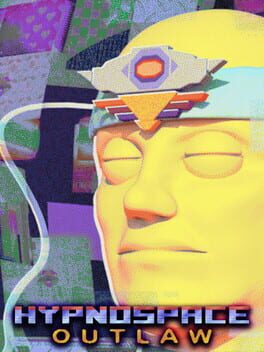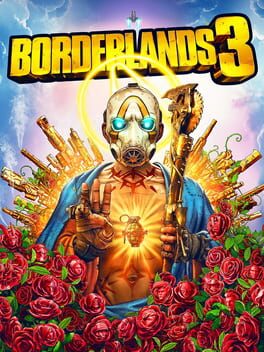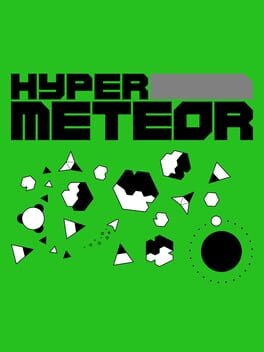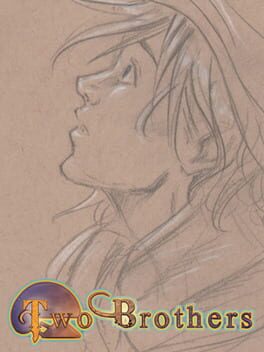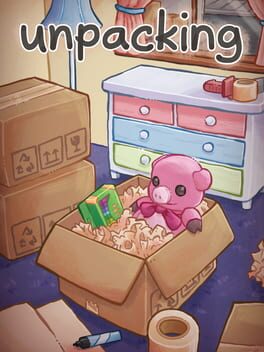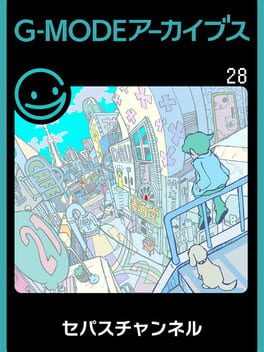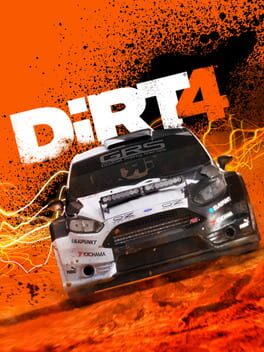18 Reviews liked by ticky
Hypnospace Outlaw
2019
An epistolary narrative assembled from Geocities pages, Hypnospace Outlaw could have easily slipped into twee Web 1.0 nostalgia or punched down on the collection of weirdos and outcasts who populate its alternate reality version of the 90s web. But somehow, miraculously, it creates a fully realized and lived-in world of surprisingly multi-layered characters whose flaws and eccentricities are often humorous but more often endearing. There are some fairly easy to spot influences: Michel Gondry’s blend of technology and magical realism and the lo-fi surreality of Tim & Eric immediately spring to mind. Yet this brand of storytelling and writing still feels utterly unique. There is nothing else out there that approximates the Hypnospace Outlaw vibe.
An embarrassment of riches is hiding in plain sight, from emotionally wrenching chat logs saved in text files to pitch-perfect parodies of musical genres ranging from nu-metal to kosmische. The kind of petty dramas familiar to anyone who frequented message boards in the 90s bubble up from passive-aggressive snipes to full-on flame wars in delightfully absurd ways. Jokes layer on top of jokes layer on top of heartbreak. And it all feels genuine, because the writers have affection not just for the era but for the characters.
The gameplay has obvious influences from hidden object games, as well as the keyword-driven search of Her Story and the meta trickery of Cliff Johnson’s works such as The Fool’s Errand. While there are a few clever “a-ha!” moments, hunting for the next MacGuffin to advance the story can occasionally become a chore. This almost would have been better with mechanics stripped out in favor of presenting a pure interactive narrative. But this is a minor gripe in the face of brilliance. Hypnospace Outlaw accomplishes the rarest of feats: It got me invested in its world. I cannot wait to play Slayers X and (hopefully!) Dreamsettler soon.
An embarrassment of riches is hiding in plain sight, from emotionally wrenching chat logs saved in text files to pitch-perfect parodies of musical genres ranging from nu-metal to kosmische. The kind of petty dramas familiar to anyone who frequented message boards in the 90s bubble up from passive-aggressive snipes to full-on flame wars in delightfully absurd ways. Jokes layer on top of jokes layer on top of heartbreak. And it all feels genuine, because the writers have affection not just for the era but for the characters.
The gameplay has obvious influences from hidden object games, as well as the keyword-driven search of Her Story and the meta trickery of Cliff Johnson’s works such as The Fool’s Errand. While there are a few clever “a-ha!” moments, hunting for the next MacGuffin to advance the story can occasionally become a chore. This almost would have been better with mechanics stripped out in favor of presenting a pure interactive narrative. But this is a minor gripe in the face of brilliance. Hypnospace Outlaw accomplishes the rarest of feats: It got me invested in its world. I cannot wait to play Slayers X and (hopefully!) Dreamsettler soon.
Borderlands 3
2019
Mind-numbingly exhausting in every way, an absolutely terrible experience. It doesn't try to build upon its predecessors, it's basically the same as the Pre-Sequel with more memorable antagonists. Instead, it's even more sluggish mainly because its story refuses to end, collecting keys to build keys to do something but unfortune strikes and you take a detour, for 30+ hours.
The story is very much superhero-esque, the most important things happen in cutscenes with bewildering consequences and actions that make no sense - the worst death scenes I've ever seen, as well as a shoehorned bittersweet ending with basically no setup. The only good things about it were Lilith and maybe Tina. Everything you expect happens, Claptrap does something dumb in the beginning, people die, people didn't actually die, some new concept about the vaults springs into existence, there's nothing new.
The balancing is once again atrocious, but instead of being under- you're much rather overpowered, ending most boss fights hilariously quickly. It's not helped by the hyperinflation of legendary weapons appearing, every second skag has one, and especially during the last chapter it's not surprising to find at least 20 of those - giving you no time to try them out, much less store them. Even with great power, it's a slug to navigate the last quarter because the levels are overly long filled with the same enemy types over and over and over.
I think this all mainly points to a complete collapse of the direction and management, which is sad to see. There seem to have been big cuts or changes in the story, and there has been no time to fix the numerous glitches, UI and UX issues that are still apparent now, three years later.
Play Borderlands 2 instead.
The story is very much superhero-esque, the most important things happen in cutscenes with bewildering consequences and actions that make no sense - the worst death scenes I've ever seen, as well as a shoehorned bittersweet ending with basically no setup. The only good things about it were Lilith and maybe Tina. Everything you expect happens, Claptrap does something dumb in the beginning, people die, people didn't actually die, some new concept about the vaults springs into existence, there's nothing new.
The balancing is once again atrocious, but instead of being under- you're much rather overpowered, ending most boss fights hilariously quickly. It's not helped by the hyperinflation of legendary weapons appearing, every second skag has one, and especially during the last chapter it's not surprising to find at least 20 of those - giving you no time to try them out, much less store them. Even with great power, it's a slug to navigate the last quarter because the levels are overly long filled with the same enemy types over and over and over.
I think this all mainly points to a complete collapse of the direction and management, which is sad to see. There seem to have been big cuts or changes in the story, and there has been no time to fix the numerous glitches, UI and UX issues that are still apparent now, three years later.
Play Borderlands 2 instead.
Borderlands 3
2019
Borderlands 3
2019
There were two moments throughout Borderlands 3 where the game gave me any form of positive emotions. The first was a side mission called "Life of the Party" where you attend a celebration of life for someone who recently passed away. You play several little games and you're given the opportunity to one-up the score of the recently deceased, but if you don't you're rewarded with a very genuine and very solemn response from the game. For once in the 50 hours I had played up to that point, the game didn't feel like it wasn't trying to peddle its new stand-up routine and it gave me a moment to think about what it could have done more.
The other moment was the Bounty of Blood DLC. After trudging through the other three expansions and the Designer's/Director's DLCs, I was praying this last one would at the very least end quickly. Instead I got a genuine homage and adaptation of classic western themes that, while occasionally quippy, managed to hold my interest the entire time. The narration was charming and the characters were much more realized than anything in the base game. It felt closer to the roots of the series with generally deadpan plot beats and darker humor and it made me miss the days of playing Borderlands 1.
Past that, it's astounding to me that this game has any positive reception. Everyone's heard the take "the story sucks but the gunplay is good" followed by "Borderlands never had a good story so who cares". Both of these points deserve a large amount of scrutiny as the issues lie much deeper to the core of this game.
The gunplay, while improved from Borderlands 2 to 3, relies on improving your loadout through picking up gear from enemies or chests (no shit, I know). The issue is that if you aren't using one of a couple dozen legendary weapons, most of which come from the latter half of the game, you're putting yourself at a severe handicap. Anything worse than a legendary deals pitiful damage while also not having any unique gimmicks to potentially make them stand out in your arsenal. I get that BL2's standards of regearing every few levels suck major ass but when you get a weapon at level 12 and you're using it until nearly level 28, there's something wrong with your base weapons (BL1 had the excuse of being effectively the first game in the genre which gives it a pass in my mind).
When it comes to early progression, you have no reason not to grind out the legendary sniper rifle from the first map and the legendary pistol from the second because nothing else comes close in damage potential and nothing will for a long time. This leads to very little in build variety since even if you use differing characters and skills, you'll be using the same weapons every single time. Doing side missions doesn't alleviate the issue either as nearly every single mission reward is near worthless from my experience. Contrary to BL2 where many mission rewards throughout the entire game were incredibly useful for pushing you forward through the game. It all circles back around to farming the same enemies over and over to get the best legendary drop out of the massive piles they explode into, which makes the name legendary oxymoronic.
Every single criticism to the plot is 100% deserved. There are very few, if any, good moments as you progress through the story. This applies to the side missions and DLCs as well, as they're trying so hard to be funny at nearly every single moment (again, Life of the Party and Bounty of Blood withstanding). The very few moments the game shows restraint tend to consist of some of the most baffling and jarring choices the writing team could come up with. None of what I'm saying here is new, but there's nothing wrong with restating the lack of core quality.
Borderlands has had good writing before. BL2 has some great moments, from the twist and betrayal of using Wilhem's power core, to the death of Angel and Handsome Jack's response to it, to the Tiny Tina DLC and its solid campaign direction and heartfelt emotional conclusion. The core team at Gearbox is capable of making good writing choices on their own. If you extend it to other Borderlands properties, Tales from the Borderlands is consistently touted as one of the best Telltale games to be released and there was a lot Gearbox could have learned from it (I swear I remember some articles from before BL3's release saying they took lessons from the game but I can't find them and it's very obviously not the case). The Pre-Sequel also had a solid core plot from beginning to end and it did a great job showing Jack's character progression, letting serious moments settle, and best of all the Claptastic Voyage DLC which is one of the best pieces of Borderlands media in my opinion. The point is, the world of Borderlands is capable of having good stories to tell and nobody should settle for the trash Gearbox has decided to continue pursuing.
Borderlands as a series isn't in a good place in a critical sense. Tiny Tina's Wonderlands is so devoid of content that even the most diehard of Borderlands fans won't touch it. New Tales from the Borderlands is a miserable experience from beginning to end. The movie has been in development hell for years and takes the plots of the first two games and puts them in a trash compactor. I don't see this series going on much longer and in my humble opinion this game was the first domino to fall.
The other moment was the Bounty of Blood DLC. After trudging through the other three expansions and the Designer's/Director's DLCs, I was praying this last one would at the very least end quickly. Instead I got a genuine homage and adaptation of classic western themes that, while occasionally quippy, managed to hold my interest the entire time. The narration was charming and the characters were much more realized than anything in the base game. It felt closer to the roots of the series with generally deadpan plot beats and darker humor and it made me miss the days of playing Borderlands 1.
Past that, it's astounding to me that this game has any positive reception. Everyone's heard the take "the story sucks but the gunplay is good" followed by "Borderlands never had a good story so who cares". Both of these points deserve a large amount of scrutiny as the issues lie much deeper to the core of this game.
The gunplay, while improved from Borderlands 2 to 3, relies on improving your loadout through picking up gear from enemies or chests (no shit, I know). The issue is that if you aren't using one of a couple dozen legendary weapons, most of which come from the latter half of the game, you're putting yourself at a severe handicap. Anything worse than a legendary deals pitiful damage while also not having any unique gimmicks to potentially make them stand out in your arsenal. I get that BL2's standards of regearing every few levels suck major ass but when you get a weapon at level 12 and you're using it until nearly level 28, there's something wrong with your base weapons (BL1 had the excuse of being effectively the first game in the genre which gives it a pass in my mind).
When it comes to early progression, you have no reason not to grind out the legendary sniper rifle from the first map and the legendary pistol from the second because nothing else comes close in damage potential and nothing will for a long time. This leads to very little in build variety since even if you use differing characters and skills, you'll be using the same weapons every single time. Doing side missions doesn't alleviate the issue either as nearly every single mission reward is near worthless from my experience. Contrary to BL2 where many mission rewards throughout the entire game were incredibly useful for pushing you forward through the game. It all circles back around to farming the same enemies over and over to get the best legendary drop out of the massive piles they explode into, which makes the name legendary oxymoronic.
Every single criticism to the plot is 100% deserved. There are very few, if any, good moments as you progress through the story. This applies to the side missions and DLCs as well, as they're trying so hard to be funny at nearly every single moment (again, Life of the Party and Bounty of Blood withstanding). The very few moments the game shows restraint tend to consist of some of the most baffling and jarring choices the writing team could come up with. None of what I'm saying here is new, but there's nothing wrong with restating the lack of core quality.
Borderlands has had good writing before. BL2 has some great moments, from the twist and betrayal of using Wilhem's power core, to the death of Angel and Handsome Jack's response to it, to the Tiny Tina DLC and its solid campaign direction and heartfelt emotional conclusion. The core team at Gearbox is capable of making good writing choices on their own. If you extend it to other Borderlands properties, Tales from the Borderlands is consistently touted as one of the best Telltale games to be released and there was a lot Gearbox could have learned from it (I swear I remember some articles from before BL3's release saying they took lessons from the game but I can't find them and it's very obviously not the case). The Pre-Sequel also had a solid core plot from beginning to end and it did a great job showing Jack's character progression, letting serious moments settle, and best of all the Claptastic Voyage DLC which is one of the best pieces of Borderlands media in my opinion. The point is, the world of Borderlands is capable of having good stories to tell and nobody should settle for the trash Gearbox has decided to continue pursuing.
Borderlands as a series isn't in a good place in a critical sense. Tiny Tina's Wonderlands is so devoid of content that even the most diehard of Borderlands fans won't touch it. New Tales from the Borderlands is a miserable experience from beginning to end. The movie has been in development hell for years and takes the plots of the first two games and puts them in a trash compactor. I don't see this series going on much longer and in my humble opinion this game was the first domino to fall.
Borderlands 3
2019
Immortality
2022
Immortality
2022
Pick Pack Pup
2022
What a cool game. This is exactly why I love Playdate. This game is perfect handheld, just the right length, and the kind of thing I might have missed if it weren't in a "season" like this.
It's the perfect mix of chill puzzle that's also got enough going on to keep me thinking the whole time. Has the vibe of "what if Popcap still made video games".
It's the perfect mix of chill puzzle that's also got enough going on to keep me thinking the whole time. Has the vibe of "what if Popcap still made video games".
Hyper Meteor
2022
There's a ton of work simulator games but not many about workers, which is a shame, cause it adds a lot to this one.
The core game play rules. It just really clicked with me. Learning the ships felt good. Trying to work too fast and getting sucked into the furnace really made me re-experience the feeling of fucking up at various jobs. I like how mistakes aren't really punished mechanically, but the context makes you feel bad anyway.
In general, I was a big fan of the writing. Lot of the specifics about the work and the characters felt real. A subtle thing I think they nailed is how there actually are people who like doing dangerous, physically demanding jobs, and people who take pride in their work, and how the company uses that earnestness to exploit them further. Also, upgrade trees suck, so it was a good joke how all the upgrades are about having to pay for proper software updates and safety measures.
The dialog gets a little hokey, and I didn't like all the performances, but whatever. The endings (both of em) were just awful. But overall a game that was extremely my shit.
The core game play rules. It just really clicked with me. Learning the ships felt good. Trying to work too fast and getting sucked into the furnace really made me re-experience the feeling of fucking up at various jobs. I like how mistakes aren't really punished mechanically, but the context makes you feel bad anyway.
In general, I was a big fan of the writing. Lot of the specifics about the work and the characters felt real. A subtle thing I think they nailed is how there actually are people who like doing dangerous, physically demanding jobs, and people who take pride in their work, and how the company uses that earnestness to exploit them further. Also, upgrade trees suck, so it was a good joke how all the upgrades are about having to pay for proper software updates and safety measures.
The dialog gets a little hokey, and I didn't like all the performances, but whatever. The endings (both of em) were just awful. But overall a game that was extremely my shit.
Two Brothers
2013
I feel like I'm usually pretty patient, but man. This is easily one of the worst games I've ever played.
Lots of enthusiasm, very little understanding of what makes a game tick.
It's very excited about making you read lots of very poor, florid writing. Your wife gets referred to as your "loving wife" 12 times before she's killed in a scripted encounter 2 minutes into the game.
You switch resolutions by typing "1" through "9" on your keyboard, and any option you pick makes the window disappear permanently. You enable gamepad controls by hitting the "3" key on your keyboard in the options menu. Stepping into most walls gets you stuck or lets you clip through.
The map design is slapdash in a way a lot of amateur map design is, with wide open spaces and escher-like mashing up of verticality into flat spaces. In a Yume Nikki-like game this could work really well, but this game doesn't seem aware that its map design is weird, or that its "bad" properties could make it interesting.
Lots of enthusiasm, very little understanding of what makes a game tick.
It's very excited about making you read lots of very poor, florid writing. Your wife gets referred to as your "loving wife" 12 times before she's killed in a scripted encounter 2 minutes into the game.
You switch resolutions by typing "1" through "9" on your keyboard, and any option you pick makes the window disappear permanently. You enable gamepad controls by hitting the "3" key on your keyboard in the options menu. Stepping into most walls gets you stuck or lets you clip through.
The map design is slapdash in a way a lot of amateur map design is, with wide open spaces and escher-like mashing up of verticality into flat spaces. In a Yume Nikki-like game this could work really well, but this game doesn't seem aware that its map design is weird, or that its "bad" properties could make it interesting.
Unpacking
2021
I played Unpacking during a particularly hectic time in my life because I was looking for something relaxing. It definitely did fill that need for me - as someone who loves organizing it felt very good to put all these little items just in their place. I felt like there were some minor mechanical frustrations but nothing that really heavily impacted my experience.
What I didn't expect from Unpacking was how much I would love the storytelling - exploring the ways life changes over time through the items we value and the places we live. The mechanics of the game do such a lovely job of communicating phases of life and how our relationships grow and change. The feeling of not wanting to move your roommate's stuff, the freedom of your own place, and the way the line between "mine" and "theirs" becomes fuzzy. To see which items are constant throughout life and which things we obtain and discard as we grow just felt very special.
Overall a game that was exactly what I needed when I needed it. It's earned a special place in my heart.
What I didn't expect from Unpacking was how much I would love the storytelling - exploring the ways life changes over time through the items we value and the places we live. The mechanics of the game do such a lovely job of communicating phases of life and how our relationships grow and change. The feeling of not wanting to move your roommate's stuff, the freedom of your own place, and the way the line between "mine" and "theirs" becomes fuzzy. To see which items are constant throughout life and which things we obtain and discard as we grow just felt very special.
Overall a game that was exactly what I needed when I needed it. It's earned a special place in my heart.
Sepas Channel
2008
Wow. What a game. As you can probably tell from how I'm writing this so long after my playthrough, it's stuck in my head.
In the west this gets compared to Mother/Earthbound a lot, but this is a game about individual characters and their very personal struggles that leads to a very different kind of storytelling than Mother goes for. The focus is less on the events, less on an epic world-scale story, and more about the very specific personal journeys of the protagonists.
I think Boy's existential struggle for "what does it mean to find your place in the world" is a pretty common feeling, but it's expressed with a depth and conviction that really comes through. His parasocial relationship with Sebastian is interesting to reevaluate in the era of streamers and "accessible" modern celebrities. It pairs interestingly with Sebastian's nervousness about taking responsibility for his own art, his ambivalence as to whether anything he says matters.
Bonnie's arc is maybe the most nuanced and interesting, not only her struggles with her own art and what it means to expect something from an audience when she shares it, but also her struggles with how and whether to live in the future.
It's impressive how smart the map design is. This is a feature phone game - it couldn't have had more than 512KB of storage. The very clever reuse of maps, having characters retread their journeys frequently, is a smart way of making the most of what they have. Instead of feeling repetitive, it encourages you to develop a very close, personal relationship with the city.
I dearly hope this gets a translation of some kind someday. I want more people to be able to experience it.
In the west this gets compared to Mother/Earthbound a lot, but this is a game about individual characters and their very personal struggles that leads to a very different kind of storytelling than Mother goes for. The focus is less on the events, less on an epic world-scale story, and more about the very specific personal journeys of the protagonists.
I think Boy's existential struggle for "what does it mean to find your place in the world" is a pretty common feeling, but it's expressed with a depth and conviction that really comes through. His parasocial relationship with Sebastian is interesting to reevaluate in the era of streamers and "accessible" modern celebrities. It pairs interestingly with Sebastian's nervousness about taking responsibility for his own art, his ambivalence as to whether anything he says matters.
Bonnie's arc is maybe the most nuanced and interesting, not only her struggles with her own art and what it means to expect something from an audience when she shares it, but also her struggles with how and whether to live in the future.
It's impressive how smart the map design is. This is a feature phone game - it couldn't have had more than 512KB of storage. The very clever reuse of maps, having characters retread their journeys frequently, is a smart way of making the most of what they have. Instead of feeling repetitive, it encourages you to develop a very close, personal relationship with the city.
I dearly hope this gets a translation of some kind someday. I want more people to be able to experience it.
Omori
2020
This review contains spoilers
I'm really torn on Omori. For context, I played the "good ending" route without the bonus Basil scene.
I don't mind messy RPG Maker games - in fact I love a lot of them - but parts of Omori are messy in ways that aren't interesting. The early game especially tends towards weak map design and merely "okay" cute wacky story sequences that didn't really pull me in.
There's an interesting tension in the fantasy world sequences about how invested you can really get in what you know isn't real, about these characters you know are fake in the game's own fiction - but that tension doesn't really hold for ~10-15 hours of gameplay.
Up until the last few hours I thought it was okay, if not great. The late-game twist feels, honestly, incredibly unearned and mawkish. It feels timed and written to prioritize shocking the player and making the player feel sad over accomplishing its narrative and thematic goals. I see a lot of players making memes about how sad the game made them, so I guess it worked for some people, but it just didn't land right for me.
According to the wiki, there's internal text for the "Truth" photo album that tells the story of Mari's death in lurid detail. It feels intended specifically for wiki dataminers who need every detail, and, honestly, those details are better left untold. The scene's more effective by being told vaguely and leaving the player room to interpret; leaving it carefully written out frankly takes away from it. Worse, it makes players start thinking about whether it's even possible for it to have happened, and at the point players are thinking about "could this even work" you've lost the mindset you need for this kind of horror to work.
For the same reasons, I ended up finding Basil a more interesting and nuanced character. You're not given as much detail about what happened with him, or how to think about him, and it leaves a lot more room to think about it.
A version of Omori that's about 10 hours shorter and less focused on "making players sad" would be a lot more interesting.
I don't mind messy RPG Maker games - in fact I love a lot of them - but parts of Omori are messy in ways that aren't interesting. The early game especially tends towards weak map design and merely "okay" cute wacky story sequences that didn't really pull me in.
There's an interesting tension in the fantasy world sequences about how invested you can really get in what you know isn't real, about these characters you know are fake in the game's own fiction - but that tension doesn't really hold for ~10-15 hours of gameplay.
Up until the last few hours I thought it was okay, if not great. The late-game twist feels, honestly, incredibly unearned and mawkish. It feels timed and written to prioritize shocking the player and making the player feel sad over accomplishing its narrative and thematic goals. I see a lot of players making memes about how sad the game made them, so I guess it worked for some people, but it just didn't land right for me.
According to the wiki, there's internal text for the "Truth" photo album that tells the story of Mari's death in lurid detail. It feels intended specifically for wiki dataminers who need every detail, and, honestly, those details are better left untold. The scene's more effective by being told vaguely and leaving the player room to interpret; leaving it carefully written out frankly takes away from it. Worse, it makes players start thinking about whether it's even possible for it to have happened, and at the point players are thinking about "could this even work" you've lost the mindset you need for this kind of horror to work.
For the same reasons, I ended up finding Basil a more interesting and nuanced character. You're not given as much detail about what happened with him, or how to think about him, and it leaves a lot more room to think about it.
A version of Omori that's about 10 hours shorter and less focused on "making players sad" would be a lot more interesting.
Dirt 4
2017
I initially wrote a more ordinary review about DiRT 4 as a set of features, describing how the car feels and how it compares to the DiRT Rally series. After a little more thought, though, none of that really stands out enough to warrant writing a whole review. What's remarkable, though, is the sense of camaraderie you feel with the AI co-driver.
No other sports game has done as good a job with this. In most sports games, your AI teammates are (at best) competent enough not to think about, and at worst feel like poorly concealed double agents. DiRT 4's co-driver demonstrates that you need them through your own fuckups and the moments in which you doubt the accuracy of the pacenotes. Moments in which you hear "caution crest, immediate right 1, don't cut" and think "eh, this looks just like any other sharp right turn" only to realize that sight-reading that turn would've air-mailed you both right off a cliff. Moments in which you have screwed up badly enough to lose your headlights on a night stage and can barely see your own car, but still manage to post a decent enough time because the course is being read to you.
This isn't the first rally game to include pacenotes, and it's not even the first game in the DiRT series to include them either. But the arcade elements present here lend the game a greater sense of speed and a more balanced sense of danger - I've played both DiRT Rally games prior to this and never really felt like I should be going all that fast unless I want to hit a fence at 16 kph and somehow simultaneously puncture 3 separate tires. With greater control over my car, though, and somewhat decreased vehicle damage, I feel like I can fly around corners much faster - meaning that my co-driver is all the more valuable when she's telling me how I should crest a hill, or when I can safely cut a turn, reining me in when I get a little too confident. And sure, the co-driver isn't some well-rounded human character, given that she never misreads the pacenotes, or drops them, or loses her place. But a little chatter at the beginning and end of races about how well you did, or encouraging you to do your best despite damage to the car, that goes a long way towards making her feel like an incredibly trustworthy human instead of the "robot reading from a script" that she actually is.
DiRT 4 has actually managed to succeed in making me feel like I've got a dependable teammate when I'm playing completely alone, something that I've never seen outside of scripted, story-oriented games, and they managed to do it primarily through arcade-like driving physics - emboldening me to hit the gas a little harder, and take blind corners with confidence.
No other sports game has done as good a job with this. In most sports games, your AI teammates are (at best) competent enough not to think about, and at worst feel like poorly concealed double agents. DiRT 4's co-driver demonstrates that you need them through your own fuckups and the moments in which you doubt the accuracy of the pacenotes. Moments in which you hear "caution crest, immediate right 1, don't cut" and think "eh, this looks just like any other sharp right turn" only to realize that sight-reading that turn would've air-mailed you both right off a cliff. Moments in which you have screwed up badly enough to lose your headlights on a night stage and can barely see your own car, but still manage to post a decent enough time because the course is being read to you.
This isn't the first rally game to include pacenotes, and it's not even the first game in the DiRT series to include them either. But the arcade elements present here lend the game a greater sense of speed and a more balanced sense of danger - I've played both DiRT Rally games prior to this and never really felt like I should be going all that fast unless I want to hit a fence at 16 kph and somehow simultaneously puncture 3 separate tires. With greater control over my car, though, and somewhat decreased vehicle damage, I feel like I can fly around corners much faster - meaning that my co-driver is all the more valuable when she's telling me how I should crest a hill, or when I can safely cut a turn, reining me in when I get a little too confident. And sure, the co-driver isn't some well-rounded human character, given that she never misreads the pacenotes, or drops them, or loses her place. But a little chatter at the beginning and end of races about how well you did, or encouraging you to do your best despite damage to the car, that goes a long way towards making her feel like an incredibly trustworthy human instead of the "robot reading from a script" that she actually is.
DiRT 4 has actually managed to succeed in making me feel like I've got a dependable teammate when I'm playing completely alone, something that I've never seen outside of scripted, story-oriented games, and they managed to do it primarily through arcade-like driving physics - emboldening me to hit the gas a little harder, and take blind corners with confidence.
